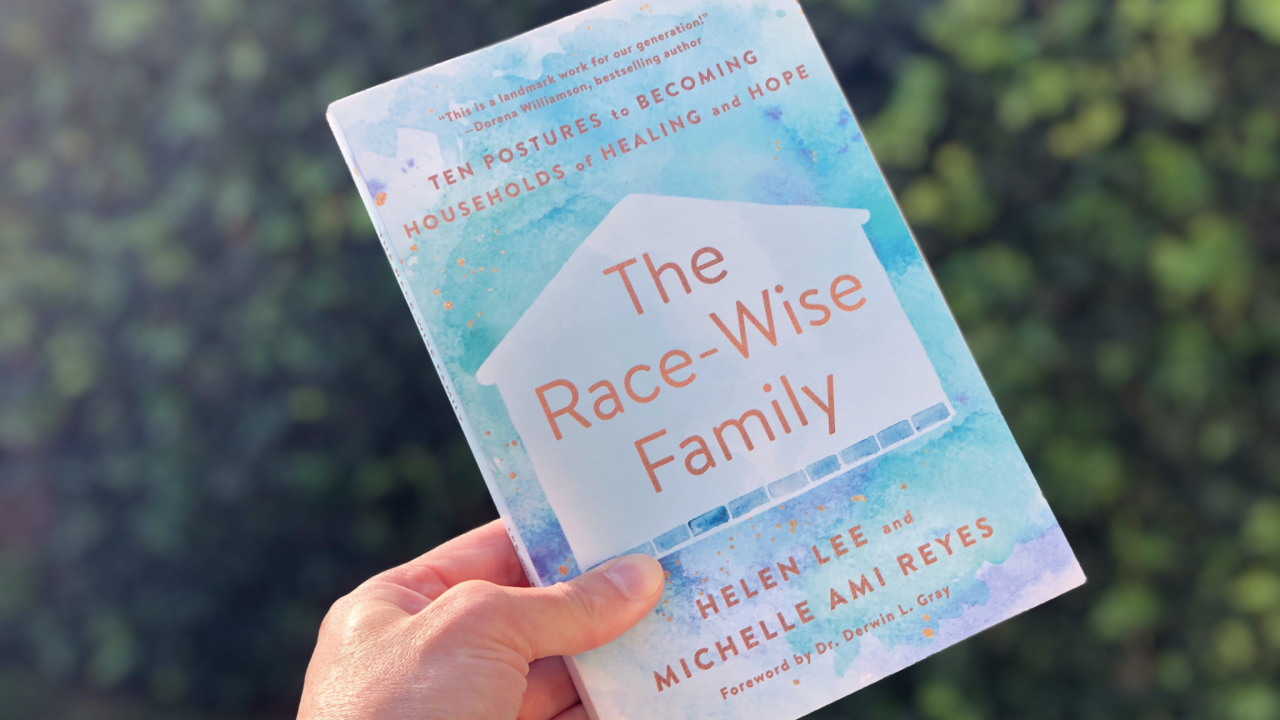How can you teach your children about racism and prepare them to respond? In The Race-Wise Family, Helen Lee and Michelle Ami Reyes share 10 postures to becoming households of healing and hope.
Help and Wisdom
The book begins by admitting that the topic of race is difficult to address, and therefore we must ask God for help and wisdom. The authors write, “The goal of a race-wise family is not simply to grow in intellectual understanding of the Bible’s discussions about race and culture but rather to pursue a biblical vision of human flourishing in the home, the community, and the nation.”
The authors make their case that the witness of the church and the integrity of the gospel is at stake. Being race-wise is also an issue of discipleship and a way to bring hope and healing to our divided country. Each chapter discusses a posture for being a race-wise family.
Empathy and Compassion
The first posture is valuing multi-ethnicity. God is shown to be at the center of our lives as he breaks down barriers with the gospel. The second posture is seeing color, and this means to celebrate our cultural differences while honoring our ethnic heritages. With this mindset, we can give value to people, which allows us to care for them in a holistic way. Wisdom means continually considering which aspects of our cultures reflect the image of God and which aspects reflect idols. We must be intentionally “color aware.”
The book moves on in understanding a biblical view of racism. The authors are quick to call racism sin, and they give the Gospel as the answer. We must open our hearts to lament, and Reyes writes that it is a core element of our Christian witness. It is where we can come to God with our empathy and compassion for others. I was interested to see how parents are responsible to teach their children how to wail and lament. Trusting God does not lead to an absence of pain. Instead, it changes our heart to love others.
Education and Communication
We are encouraged to speak words of love and truth. Stereotypes and racial prejudices are most often relayed by our words. Parents should embrace and develop their prophetic and pastoral roles and responsibilities to pass along truth to their children. We must respond to current events. At the same time, love and wisdom means having the ability to think critically while being slow to speak. Addressing privilege and assessing our own biases help us as we journey towards racial healing and raise kingdom-minded children.
Each chapter ends with practical examples to becoming a race-wise family. While many focus on education, there is also an emphasis on communication. The book is personal, and both authors are open to discussing their stories. While the book primarily speaks to parents, all would benefit from reading its pages, especially pastors and family ministers. As a parent of color to a multiethnic family, I found this book to be a blessing.
Grace and Truth
Instead of letting our emotions or the current political climate shape our understanding of race and racism, this book brings us back to the Bible for grace and truth. It champions Jesus as Lord over our families and communities. It will help you to examine your own heart. And it will give the next generation solid ground to stand on as you build your house on the Solid Rock of Jesus.
I received a media copy of The Race-Wise Family, and this is my honest review.

